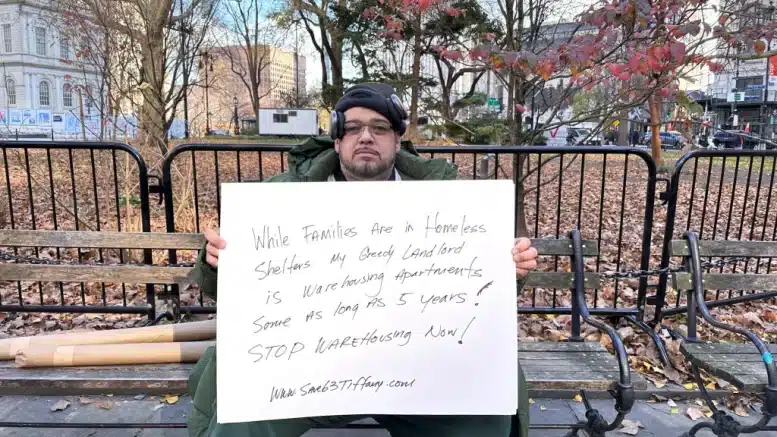In response to “warehousing” and THE CITY’s coverage, measure cues up inspections of hazardous conditions in empty units.
The City Council successfully passed Intro 195 on Wednesday, a bill designed to empower tenants to report vacant apartments in their buildings to the city’s housing agency, the Housing Preservation and Development (HPD). This initiative aims to address the longstanding issue of landlords warehousing apartments, leaving them empty and deteriorating while anticipating future rent increases. The bill, which passed with a 39 to 8 vote, enables tenants to report maintenance code issues to the HPD via the 311 hotline. City officials can then inspect vacant units that may pose hazards to neighboring occupants due to issues such as trash, mold, open windows, leaky gas pipes, and rodents.
Tenant advocates and elected officials, including Councilmember Carlina Rivera, who is the prime sponsor of Intro 195, rallied outside City Hall to support the bill. The goal is to encourage action on the estimated tens of thousands of empty units throughout the city, addressing concerns raised by tenants living amidst vacant apartments. Illapa Sairitupac, a tenant organizer with the Cooper Square Committee, expressed hope and optimism, emphasizing the potential for tenants to have more influence in ensuring HPD inspects these units.
The bill’s passage follows a trend of rising dissatisfaction with Mayor Eric Adams, whose approval rating recently dropped to an all-time low of 28%. Critics argue that thousands of rent-regulated apartments are vacant, and they attribute this to changes in state rent laws in 2019, limiting landlords’ ability to charge new tenants significantly. Landlord groups, such as the Community Housing Improvement Program, contend that the bill may exacerbate problems in struggling rent-stabilized buildings by draining more money through fines and violations on vacant units.
Despite initial opposition from HPD officials during a June 6 Council hearing, the department now supports the bill, emphasizing collaboration with the Council to ensure the legislation benefits New Yorkers. The law is expected to require an additional $150,000 in HPD expenditures to establish an appointment system for landlords to sign up for inspections of unoccupied apartments. Notably, the bill grants tenants the authority to sue landlords, compelling them to open vacant apartments for inspection, a crucial provision welcomed by tenant organizers.
While HPD presented data indicating only about 2,500 empty rent-stabilized apartments available for rent, the bill’s backers see tenant reports as a vital step in quantifying the scale of warehousing. By reporting issues through 311, tenants not only memorialize problems but also contribute to publicly accessible data that can track trends. Additionally, the Council is considering another bill that would require landlords to register empty apartments and stores, but it has not progressed to a vote. The issue of warehousing is deeply connected to financial incentives for landlords, such as the ability to combine vacant apartments to reset legal rents, a practice referred to as “frankensteining,” which has faced recent regulatory changes.
The bill’s passage comes amid a historic housing crisis, where every available unit is considered crucial. Tenant organizers stress the need to address warehousing comprehensively, citing the city’s housing challenges and the impact on people fighting for available housing units. While challenges remain, the Council sees these legislative efforts as important strides toward addressing the complex issue of warehousing and its ramifications on New York City’s housing landscape.

